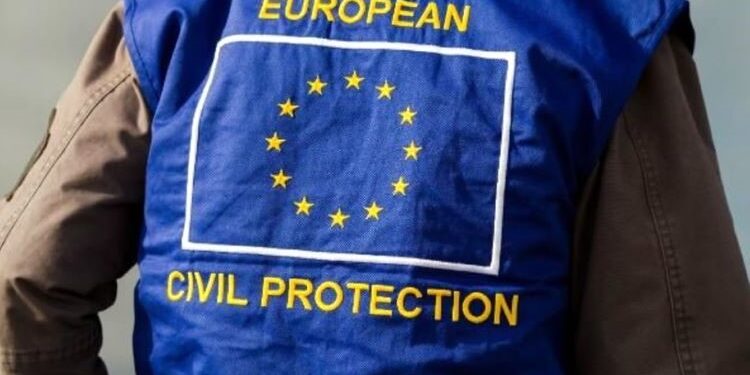Ane Barcos/Aquí Europa
The European Commission offered Spain on Wednesday the possibility of activating the Civil Protection Mechanism to deal with the ravages caused by the DANA and the President of the Commission, Ursula von der Leyen, expressed her solidarity with the victims and highlighted the support of the EU, which has already launched the Copernicus satellites to facilitate rescue and damage assessment work.
More than sixty people have died due to flooding in the province of Valencia, as confirmed after midday by the Integrated Operational Coordination Centre of the Ministry of the Interior, which collects information from various security and emergency bodies. This is the most devastating flood in Valencia so far this century.
In an institutional statement at the La Moncloa Complex, the President of the Government, Pedro Sánchez, expressed his solidarity and affection for all the victims of the storm, which has devastated part of the Valencian Community and Castilla-La Mancha, and assured that the “absolute priority” is to help those affected “with all the resources of the State and, if necessary, of the European Union”. He also promised to “put all the necessary means in place for as long as it takes for us to recover from this tragedy”. “We are not going to leave you alone”, he assured.
From Brussels, Von der Leyen lamented the “devastating consequences” of the storm in the Valencian Community, where the death toll exceeds 50. The president underlined the commitment of the European Union, which has activated the Copernicus satellite system to provide data for the emergency response.
This Earth observation programme provides accurate and timely geospatial information that helps to delimit the affected areas and plan relief operations in the event of disasters.
In addition, the president reminded the Spanish authorities that the EU Civil Protection Mechanism can be mobilised to deal with catastrophes such as DANA. Created in 2001, this mechanism can be activated not only by EU Member States, but also by countries such as Albania, Bosnia and Herzegovina, Iceland, North Macedonia, Moldova, Montenegro, Norway, Serbia, Turkey and Ukraine. The European Commission coordinates the response to disasters and covers at least 75% of the operational and transport costs in the deployments.
When the Mechanism receives a request for assistance, the Emergency Response Coordination Centre (ERCC) mobilises the necessary aid or experts. Within a short time, specialised teams and equipment, such as firefighting aircraft, medical or search and rescue teams, can be deployed within or outside Europe.
Since its creation, the EU Civil Protection Mechanism has been activated more than 700 times, including in 2023 to respond to the war in Ukraine, forest fires in Europe, and the earthquake in Syria and Turkey. It can also be used to request consular assistance in evacuation operations.
Both the European People’s Party and the Greens/EFA Group called for this issue to be addressed in the next plenary session, to be held on 13 and 14 November in Brussels, in addition to observing a minute of silence in honour of the victims. The People’s Party underlined the urgency of activating EU civil protection and solidarity measures.
The Greens/EFA, on the proposal of Compromís, were the first to call for this discussion, stating that “the EU must unite to reduce the risk of flooding and its terrible consequences for people’s lives.” They also stressed the urgent need to invest in emergency preparedness, climate adaptation and take more decisive action. Likewise, the president of the Socialists and Democrats group, Iratxe García, assured that Europe will do everything necessary to activate the available aid mechanisms.







